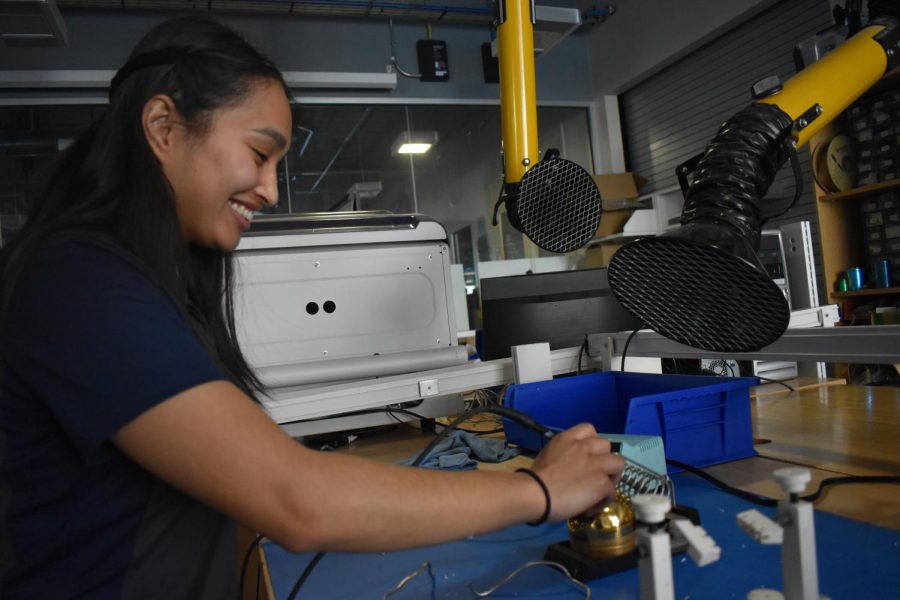Assistant Biomedical Sciences Professor Murray Blackmore will open his lab for a research project to discover what the biological master clock does to neuron communication.
The focus of the project is to determine what communication occurs between neuron cells in the brain. The key goal is finding a way to study how a protein rises and falls without killing the cell.
“It is a really exciting time in molecular neuron science,” Blackmore said. “It’s an explosion of molecular tools. My job basically is to break the clock with fancy molecular tools.”
The project is funded by a $1.7 million grant that Assistant Biomedical Sciences professor Jennifer Evans received Sept. 10 from the National Institutes of Health.
Blackmore’s lab has tools that can manipulate parts of the master clock. This altering will cause certain chemical signals to stop happening in a region of the brain, allowing him to see whether the signals are important for maintaining proper clock function.
“When the cell is killed, you can only get a snapshot,” Evans said. “I needed a movie.”
Transgenic mice that contain genes from fireflies will be the research subjects. Their cells will glow every time the clock protein is produced.
Evans said this will allow her to monitor the light emitted by cells and track daily changes in protein expression.
Since this light is impossible to see with the naked eye, Evans said she will have to take tissue from the mice and analyze it under a microscope with cameras attached.
“The master clock orchestrates the whole show,” Evans said. “It doesn’t need anything else in the body to help it keep track of daily time.”
Although the master clock is self-propelling, Evans said it needs other senses like light to keep it on track and synced to local time.
Evans said specific proteins are made and turned off at certain times of the day. That process occurs in every cell of the body, which provides people with a sense of what time it is. The process happens throughout the day with a reset occurring every 24 hours.
“It’s like an old pocket watch,” Evans said. “It can go without anybody’s help, but it needs to be reset every day.”
Evans said she is hopeful that understanding how cells communicate with each other and other tissues will help scientists understand how to mitigate the consequences of jet-lag and neurological disorders like depression and schizophrenia.
The research will be done at Marquette and incorporate experts in the field, in addition to undergraduate students.
“Easy answer is that this research will end in five years when the grant is finished,” Evans said. “Hard answer is that it will never end because of all the new questions that we will probably uncover.”







